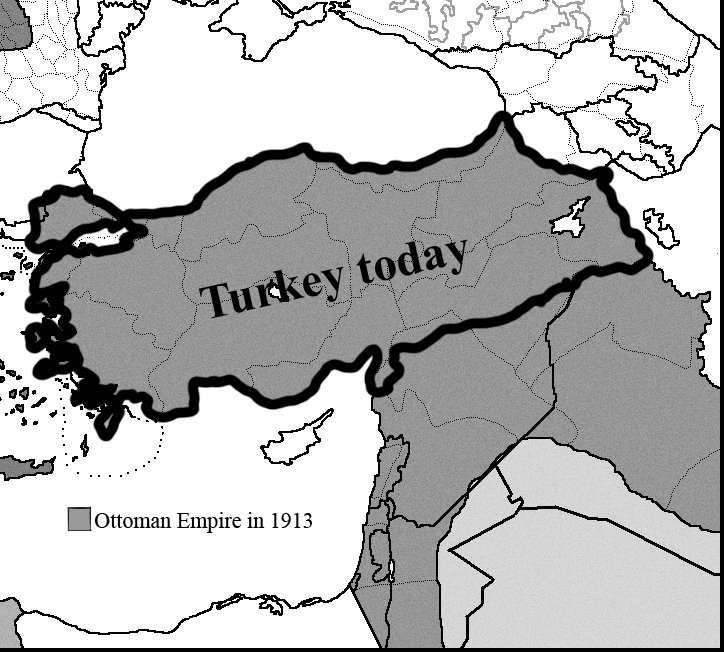Speaker explains political instability in Turkey
Country remains unstable because of economic, security challenges
JACQUI THOMASSON | DAILY EVERGREEN ILLUSTRATION
Chris Kilford, president of the Canadian International Council, says Turkey’s instability stemmed from the collapse of the Ottoman Empire.
August 29, 2019
The Foley Institute hosted Chris Kilford, president of the Canadian International Council, to speak about political instability in Turkey and its historical roots.
Kilford said he traced Turkey’s instability back to the collapse of the Ottoman Empire, which Turkey was originally part of. Prior to the first world war, the Ottoman Empire had lost significant portions of its territory.
The Ottoman Empire had suffered an economic decline and had to rely on foreign banks for financial support. Because of this, Kilford said, the empire had become somewhat of a colony controlled by British banks.
During World War I, the empire joined the Austro-Hungarian Empire as it saw the war as an opportunity to acquire more territories, he said.
This decision proved to be a downfall, Kilford said, as they would be on the losing side of the war.
He said that following World War I, Mustafa Kemal Atatürk took power in Turkey and began to put in place a series of policy changes.
Kilford said Atatürk’s administration adopted fair elections and allowed women to vote. One of the smartest things Atatürk did was keep Turkey out of World War II.
“They played a delicate game,” Kilford said. “They smartly joined the Allied Forces days before the war ended.”
Kilford said a cycle of military coups began in the 1960s and continued through the century as military officials kept trying to usurp power. These attempts at regime change often did not go as intended because of conflicting religious ideology.
In 2001, Turkey faced economic collapse as an impact of a harmful cycle of military coups, Kilford said. This is when Recep Tayyip Erdogan came to power as Turkey’s president.
Kilford said Erdogan initially enacted some politically popular changes for Turkey. He campaigned against government corruption, spurred economic growth and began to build international relations.
“Things were looking good,” Kilford said.
Then the Arab Spring, a series of political revolutions across the Middle East, caused a collapse in some of Turkey and Erdogan’s relationships, Kilford said. This was compounded with Erdogan’s fallout with Islamic scholar Muhammed Fethullah Gülen.
Kilford said the collapse of these relationships created a lot of political opponents for Erdogan, which is what lead to the attempted military coup against him in 2016.
He said the 2016 coup failed as the plot was discovered by Erdogan’s camp before it even began. Despite the coup’s failure, Kilford said 251 civilians were killed and 2,200 were wounded.
In 2018, Turkey’s 95-year-old parliamentary system was replaced by Erdogan with a presidentially led government.
“This put the power directly in Erdogan’s hands,” Kilford said.
Now Turkey remains unstable as the country faces economic challenges, security issues and a politically divided electorate, Kilford said.










Andrew • Aug 30, 2019 at 6:54 am
Strangely the article doesn’t contain the word ‘Kurds’ once. Turkey’s political troubles come also from its brutal repression of its Kurdish population.
Turkey regards Kurdish struggle for rights as a zero sum game. There is no doubt that Turkey is one of the Middle East’s primary villains.